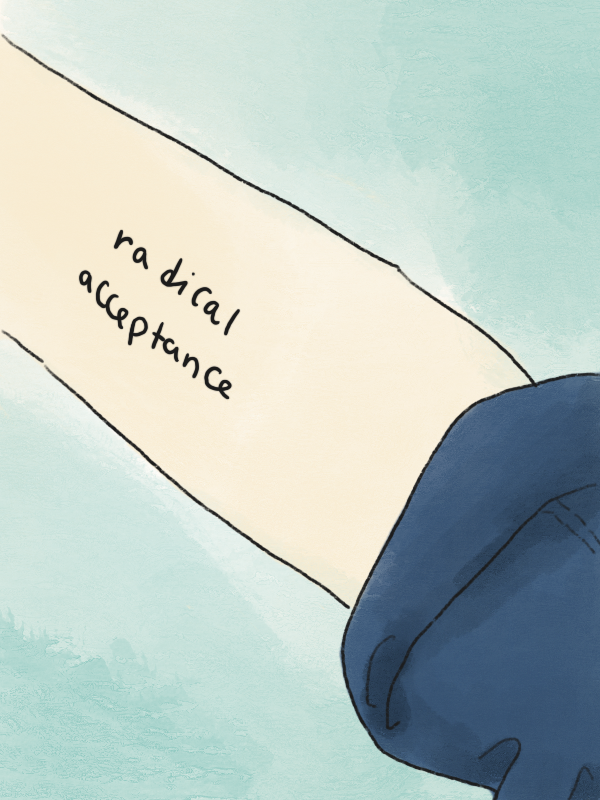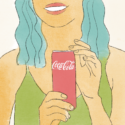Neva Lesch woke up with angry red scrapes on the right side of her face and no memory of the night before. Her best friends at the time weren’t talking to her. She tried to apologize for whatever she had done while she was drunk — though she didn’t know what.
Eventually, she pieced together that after her best friend tried to walk her home, she had given him a black eye when they slipped on ice and crashed to the ground.
This event was just part of the self-destructive path Lesch was on. “I wanted to convince the people I loved that I actually was not a good person because I knew I wasn’t,” she said.
To put a stop to the cycle, she tried to go sober. And she was, for a month and a half. Then she tried alcohol in moderation — complete with strict rules to follow. When that didn’t work out, she tried again.
Three weeks after her 21st birthday, Lesch went sober for the third time. And it stuck.
Binge Drinking in the Midwest
Lesch isn’t alone in her struggles with alcohol. According to the CDC’s data on binge drinking (defined as five or more drinks on one occasion for males and four or more drinks on one occasion for females), seven of the nine states with the highest rates are in the Midwest. Iowa, where Lesch attends college, sits at number four. It’s reported that 30.3% of people ages 18-24 binge drink, the highest rate of any age group in the state.
Of course, college students drinking isn’t a surprise to anyone — someone has to keep the college bars in business. According to the 2021 National Survey on Drug Use and Health, 49.3% of college students ages 18-22 reported drinking in the last month. Of those, 27.3% binge drank in the same time period.
That’s where Lesch had found herself — sucked into the social aspect of drinking. “I’m outgoing, but I’m also introverted,” Lesch said. “I really like talking to people, but I get kind of overwhelmed in really big groups and when it’s really loud. I really liked that alcohol made me feel more fun in those types of situations.”

Becoming Sober
Now, Lesch has been sober for over six months. The secret to her success? Outpatient DBT therapy. She attended nine hours a week of group therapy for eight weeks last summer on Zoom. “I hated it at first,” Lesch said. “I stuck with it, and ended up really liking it.”
DBT, or dialectical behavior therapy, focuses on finding a balance between who you are, your challenges, and the benefits of change, according to the Cleveland Clinic. Lesch described her sessions as “summer school,” where she learned different lessons each time. “They were like, ‘Not all work for every person, but take what helps you, leave the rest,’” Lesch said.
It was mostly coping strategies and mantras. “I used to be very anti-affirmations, like, ‘Look in the mirror and tell yourself you’re beautiful.’ I hated that,” Lesch said. “It still makes me really uncomfortable a lot of the time. But I actually learned that for myself, it can help sometimes.”
There was one phrase that stuck out with Lesch. In fact, she got it tattooed on her forearm — radical acceptance.
“I was really able to find a sense of peace, so much more so around those things that I never thought I would be able to find peace with, and that still obviously comes up and really haunts me sometimes,” Lesch said. “I’m just finding peace with it and breathing with it. That doesn’t mean I don’t think about it because I do a lot, but there’s so much less anxiety there.”
Even armed with those resources, it was still a slow and painful journey. For the first two months of being sober, Lesch felt awful. “I was miserable and exhausted almost every day, which is not what people want to hear,” Lesch said.
Her anxiety returned in full force. “I was drinking all the time so that I didn’t have to think about my problems,” Lesch said. “And because I didn’t have anxiety when I was drinking, I wasn’t anxiety-spiraling.”
It also required a lifestyle adjustment, and an extra helping of loneliness. “Wednesday, Thursday, Friday and Saturday nights I would sit in my room,” Lesch said. “Almost all my friends were going out, so I didn’t have many other options of what I could do.”
Navigating College Sober
To be clear, Lesch isn’t anti-alcohol — it just isn’t for her. She also doesn’t expect others to refrain from drinking around her. However, she quickly discovered that going out with friends and remaining sober while they drank wasn’t for her. Now, she tries to stay connected with those friends in other ways, even when she feels as though she’s missing out.
“I have tried my best to not look at it all so negatively,” Lesch said. “And so I will occasionally go to things. If I know some of my friends are having a party this weekend and it’s a block away from my house, I probably won’t be there for a while, but I’m gonna stop by and say hi to everyone and enjoy that.” She’s also learned that it’s okay to duck out once it becomes too much.
One of the perks of going sober, Lesch found, was that it gave her a lot more time. “I had a lot more time for reading, which I really enjoy, and I have a lot of things I want to get back into,” Lesch said. “I’m trying to walk a lot more with my friends as it gets nicer out.”
Movie nights are also becoming a fan-favorite for Lesch. “I was planning over the summer that I’m gonna do movie nights with my friends every week,” Lesch said. “We’ll pick a different movie and we’re gonna get candy when other people are gonna go out.”
Sharing Her Story
Throughout her sober journey, accountability was key for Lesch. At the start, she told a few of her close friends that she wasn’t going to drink before they went out so that she didn’t have to field questions or explain her decision in the moment. It also made her stick to her word.
“Many times I told myself, ‘Oh, I’m not gonna drink tonight,’” Lesch said. “It’s very easy to break that promise to yourself. But if your friends are gonna be like, ‘Hey, what’s up? I thought you weren’t gonna do that,’ it feels a lot different.”
After remaining sober for six months, Lesch took to social media. It started with a post on her Instagram story that mentioned her sobriety. She got so many responses that she made a dedicated post sharing her story in detail and fielding questions.
“So many people responded and I was like, ‘Okay, if this could actually help people, I want to talk about it,’” Lesch said.
Right now I’m pretty sure that I want to stay sober for the near future or the longer future. I’m not a black-and-white person. I don’t ever want to see drinking: bad, not drinking: good. It’s not what’s right for me right now.
Neva Lesch
Tips for Becoming Sober
Whether you’re interested in quitting alcohol cold turkey or just cutting down on a drink or two, Lesch has a few best practices to share.
Her biggest piece of advice? Talk to a therapist.
“Every person is so different,” Lesch said. “Moderation works for some people. It doesn’t work for other people. There’s not too much advice I can give that is applicable to every person.” Lesch found therapy to be more effective than a substance abuse group. “It’s really catering to what your experiences are, and then you can actually get into, ‘Well, why do I feel like I need to drink so much?’ And I think that is long term more helpful.”
For those still interested in going to bars, Lesch points out that it isn’t weird to order something non-alcoholic. “I also am a big coke girl — not the drug, the drink,” Lesch said. It’s cheap, and Lesch said people tend not to ask questions because they think you’re drinking, making it a great choice for people who aren’t comfortable explaining their choices.
“Fun little drinks” like Shirley Temples and Sparkling juices are also good options. You can even serve it up in wine glasses if you’re at home.
Having a non-alcoholic drink is also a great way to stay engaged when out on the town as a sober person. “I feel like a lot of the time if everyone’s drinking then I’m like, ‘Oh, I’m gonna be in the corner on my phone,’” Lesch said. “But even if I just have something to hold in my hand, it makes me feel less disconnected from everyone else.”
Lesch also credits her job, which gets her out of the house and keeps her busy most weekends. “I’m tired by the time I would want to go out anyway,” Lesch said. “I feel like I’m making money. I’m contributing to society, I have something to do.”
If you’re comfortable with it, Lesch recommends talking to other people. “I think there’s so little of that,” Lesch said, “which is like why I’m so interested in talking about it. I can’t think of a single story I’ve heard from a sober college student, like ever.”
Lastly, it’s important to be patient with yourself. “It’s not easy,” Lesch said. “I know I can get very stuck in, ‘Why can’t it be easy for me? Why can’t I just drink like a normal person?’ It takes a while to break that down and tell yourself, ‘I’m not those people. I’m a different person.’”

